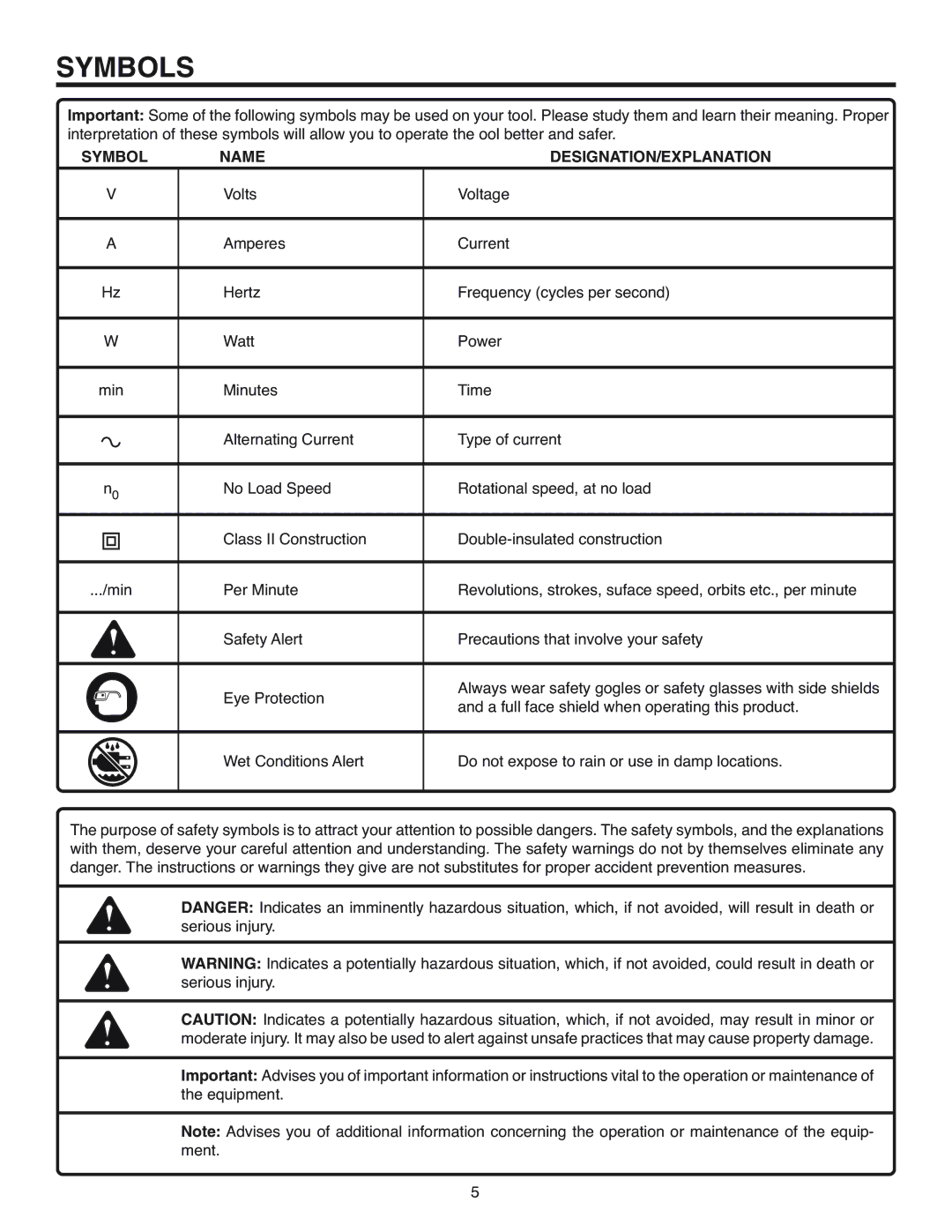
SYMBOLS
Important: Some of the following symbols may be used on your tool. Please study them and learn their meaning. Proper interpretation of these symbols will allow you to operate the ool better and safer.
SYMBOL | NAME | DESIGNATION/EXPLANATION |
V | Volts | Voltage |
|
|
|
A | Amperes | Current |
|
|
|
Hz | Hertz | Frequency (cycles per second) |
|
|
|
W | Watt | Power |
|
|
|
min | Minutes | Time |
|
|
|
| Alternating Current | Type of current |
|
|
|
n0 | No Load Speed | Rotational speed, at no load |
| Class II Construction | |
|
|
|
.../min | Per Minute | Revolutions, strokes, suface speed, orbits etc., per minute |
|
|
|
| Safety Alert | Precautions that involve your safety |
|
|
|
| Eye Protection | Always wear safety gogles or safety glasses with side shields |
| and a full face shield when operating this product. | |
|
|
Wet Conditions Alert
Do not expose to rain or use in damp locations.
The purpose of safety symbols is to attract your attention to possible dangers. The safety symbols, and the explanations with them, deserve your careful attention and understanding. The safety warnings do not by themselves eliminate any danger. The instructions or warnings they give are not substitutes for proper accident prevention measures.
DANGER: Indicates an imminently hazardous situation, which, if not avoided, will result in death or serious injury.
WARNING: Indicates a potentially hazardous situation, which, if not avoided, could result in death or serious injury.
CAUTION: Indicates a potentially hazardous situation, which, if not avoided, may result in minor or moderate injury. It may also be used to alert against unsafe practices that may cause property damage.
Important: Advises you of important information or instructions vital to the operation or maintenance of the equipment.
Note: Advises you of additional information concerning the operation or maintenance of the equip- ment.
5
